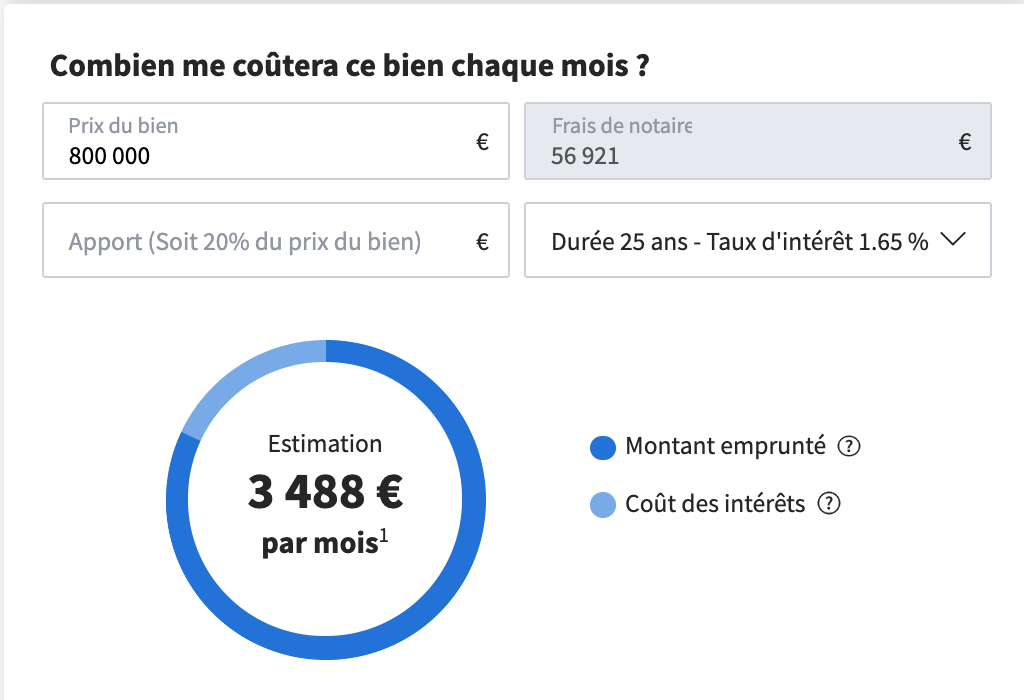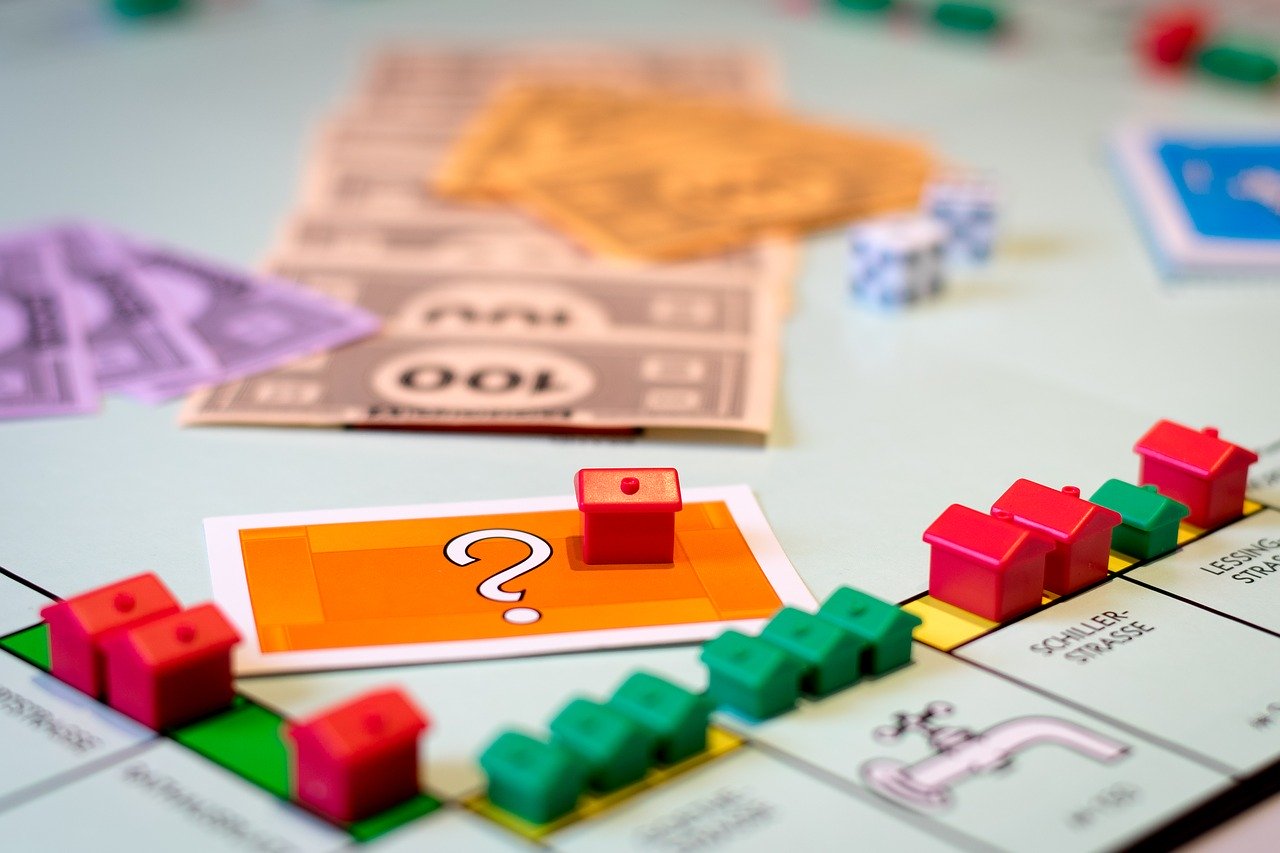Is there a way to determine if it’s better to buy or to rent?
Should I buy or should I rent? Most people assume that it’s always smarter to buy. However, sometimes renting is cheaper. It depends on several factors including:
- how much it costs to rent the property
- how much it would cost to buy the same property
- yearly price increase of the rental price
- yearly price increase of the property price
- how long you would own the property
- property taxes
Is there a golden rule, that we can apply to any real estate market in the world, whether it’s New York, Paris, Lisbon or Shanghai?
Yes, there is a way, a methodology we can apply. But before we get there, let’s use a quick calculator.
Let’s calculate whether you should rent or buy.
Hypofriend, a German online mortgage broker, has created a dynamic calculator to enable you to calculate whether you should rent or buy. While it won’t be 100% accurate for anyone not buying in Berlin but in another country, it’s a very interesting starting point.
Now, let’s talk about the methodology to go further, and find an answer to our question.
Methodology
The objective here is to determine whether it is cheaper to buy, or to rent.
Short Answer
Imagine you consider buying a property worth 1 million euros.
If you buy, let’s consider the monthly mortgage payment would be €5,000 per month during 25 years.
If you rent, let’s consider a similar property is available for €3,500 per month.
So, what do you decide? Will you buy or rent? As €3,500 is cheaper than €5,000, isn’t the right decision to rent? No it is not. Indeed, if you buy you will repay the capital, hence enriching yourself over time. While if you rent, it is a pure loss. However this does not mean that buying is always smarter than renting.
But a short answer is impossible. We need to consider more factors, to tell you whether in your particular case, buying is smarter than renting. For example, would you be staying in this property for 1 year or for 10 years? So let’s enrich our approach, to truly help you with this very important decision.
Complete Answer
To determine whether it’s cheaper to buy or to rent, we need to take into account:
- cost of buying
- cost of renting
- notary fees and transaction fees
- real estate agency fees
- mortgage fees and costs
- age of the buyer
- savings, potential downpayment
- number of years during which you imagine owning the property, before selling it
- evolution of real estate prices: more likely to go up or to go down, over this period of time?
Nothing is better than a case study, to put our methodology into practice. So let’s use two real-life examples, in two different cities and countries:
- Paris, France
- Valencia, Spain
First example: Paris, France
For our first case study, let’s say that you want to live in a one-bedroom apartment in Paris, 60 to 70 square meters, located in Le Marais (3rd and 4th arrondissements). You plan to stay at least 5 years.
In this case study, is it better to buy or to rent?
Cost of buying in Paris – €3,488 per month
You can buy such an apartment for €800,000 (sale price). Good news, the bank does not ask you for any downpayment. The acquisition costs, improperly called notary fees (“frais de notaires” in French), will be €56,921.
Estimated mortgage payments are €3,488 per month during 25 years. Indeed you saw a mortgage simulator on a leading French property portal, SeLoger.com, which gave you this below.

So, how does that compare with renting a similar apartment? Would it be cheaper?
Cost of renting in Paris – €2,500 per month
Now that you know the cost of buying, you want to compare it with the cost of renting a similar property. Surprisingly, you can find similar properties for rent for as little as €2,500 per month on the leading French real estate websites. Why? Because Paris is a global city, with expensive property prices (see our articles about real estate prices in Paris). Rental prices are relatively cheaper.
An investor’s blog published an article called “14 reasons AGAINST a Real Estate Investment in Paris“, naming for example the low yields observed in Paris.
So, we are going to easily conclude that it’s better to rent than to buy in this case, won’t we? No, we won’t. Keep reading, we will explain why this is not sufficient, and complete the methodology to answer the question in a methodical way.
Conclusion for Paris – should you buy or rent?
Renting will cost you €2,500 per month which is €988 cheaper compared to the €3,488 mortgage payment that you would face if you bought the property. If you stay for 5 years (hypothesis), then it’s clearly better to rent than to buy, isn’t it? No, IT IS NOT. We can not come to this conclusion yet.
Buying will generate €121,921 in additional costs (details below). However, you will have repaid €135,000 in principal payments (see simulator).
Details of the €121,921 calculation:
- Buying would generate a cost of €56,921 in notary fees
- Buying is €988 more expensive per month (€59,280 over 5 years) as we mentioned earlier – €3,488 mortgage payment compared to €2,500 rent
- Buying means you will have to pay property taxes (“taxe foncière”), likely to be €1,000 per year (€5,000 total over 5 years)
- TOTAL COSTS related to buying, that you wouldn’t have had if renting = € 121,201 (notary fees, extra-monthly-payment comparing mortgage vs rent, and property taxes
However, if you buy, €135,000 will go to principal payments – plus €74,000 in interest costs (total €209,000).
So, if we exclude real estate agency fees and the potential evolution of real estate prices over the next 5 years, then buying will have been cheaper than renting by €13,799 : €135,000 (principal payments) minus the €121,201 (costs related to buying).
So now the 2 big questions are:
- What if you bought a property through a real estate agent? Well, then you must add the cost (commission) as a cost related to buying, that you wouldn’t have gotten if renting. This will not play in favor of buying.
- What if real estate prices go up, or go down during 5 years? Well, the calculation must take this into account. Nobody has a crystal ball to predict the future, but if you are serious about analyzing a market, there are very clear elements pointing towards prices increasing, or decreasing. I can help you with this.
In this particular example, a determining factor was that you consider a horizon of 5 years, which is quite short. If your ambition is to buy and own the property for 10 years, re-do the maths. In France, the average property owner buys a property and sells it 8 years later (nouvelobs.com).
Finally, a word on property prices: Paris is estimated to be one of the cities in the world with the highest risk of real estate bubble, according to UBS. While this does not mean that real estate prices will necessarily go down, it is worth considering in your approach, if indeed you consider buying in Paris.
buying is in this case cheaper than renting by €13,799… if we disregard real estate agent’s commission and evolution of real estate prices
Another factor to consider: as I’m writing this article (year 2020), the world is facing the coronavirus crisis. So, imagine that you were to lose your job, decrease your revenues. It is significantly easier to get rid of the rental costs, moving to a cheaper apartment, than to get rid of the mortgage costs. At best, you can suspend your mortgage repayments during 2 months. So if you can’t face paying back your mortgage, you’d have to sell your property urgently. That’s the best way to sell at a loss, ruining completely the interest of buying in the first place.
Second example: Valencia, Spain
Now that we’ve done a thorough first example, we can be quicker for this second case study.
Imagine that you want to buy, or rent, this 4 bedroom apartment in Valencia for €249,500.

In Spain, generally, the rule is that the bank will give up to 80% of the appraised value. Thus, you are responsible for a 20% down payment as well as for all transaction costs. Unless you already have assets and can finance the property’s acquisition 100% by leveraging these assets.
Apart from that, the same methodology can be applied. However, one more particularity for Spain: rental prices have grown faster since 2009 than transaction prices. Consequently, it is often more interesting to buy than to rent.
Now, then again, with the coronavirus crisis, the analysis could change drastically because the rental market will be affected. We already know that many apartments previously offered on Airbnb are now back to the long-term rental market.
So if you’re thinking of buying or renting in Spain, do your maths, apply the methodology I described in this article. Indeed, these tips are here to help you to zoom out and think, which is essential to make informed decisions in real estate.
Sources: mortgage calculator: Bankrate.com, SeLoger, MeilleursTaux, Investopedia ; Building Equity: thebalance.com ; rent versus buy, youtube videos: the 5% rule ; Grant Cardone Youtube ; Spain moratorium: theolivepress, lavanguardia ; rental prices in Spain: fastighetsbyran.com ; moneyunder30.com ; consumerfinance

